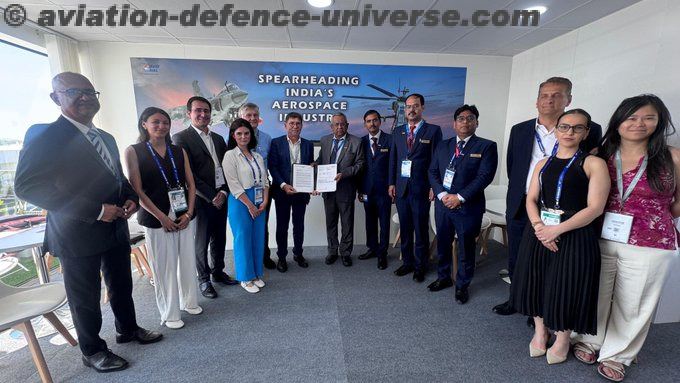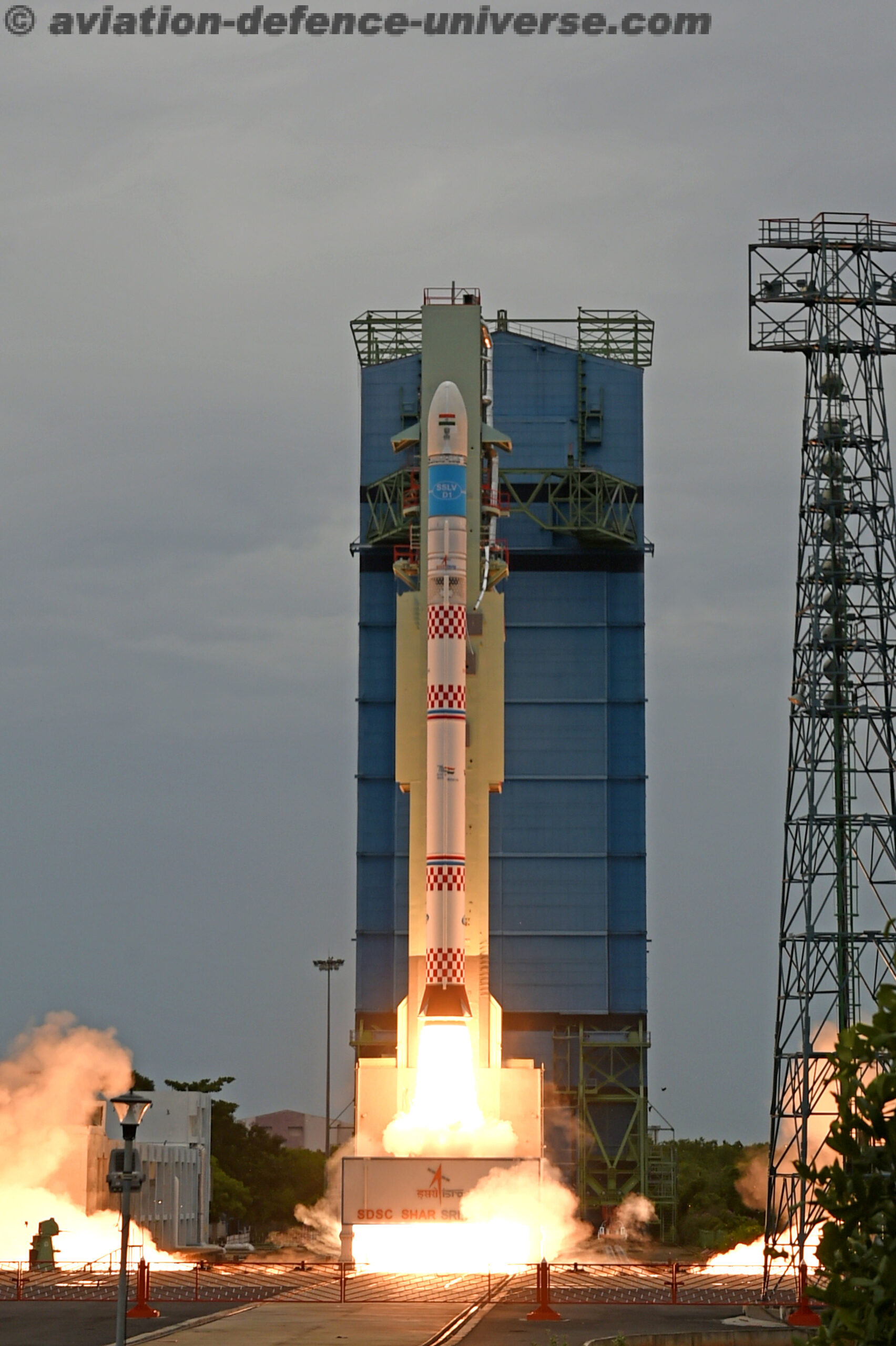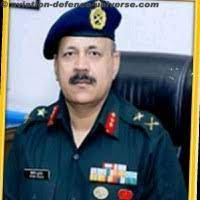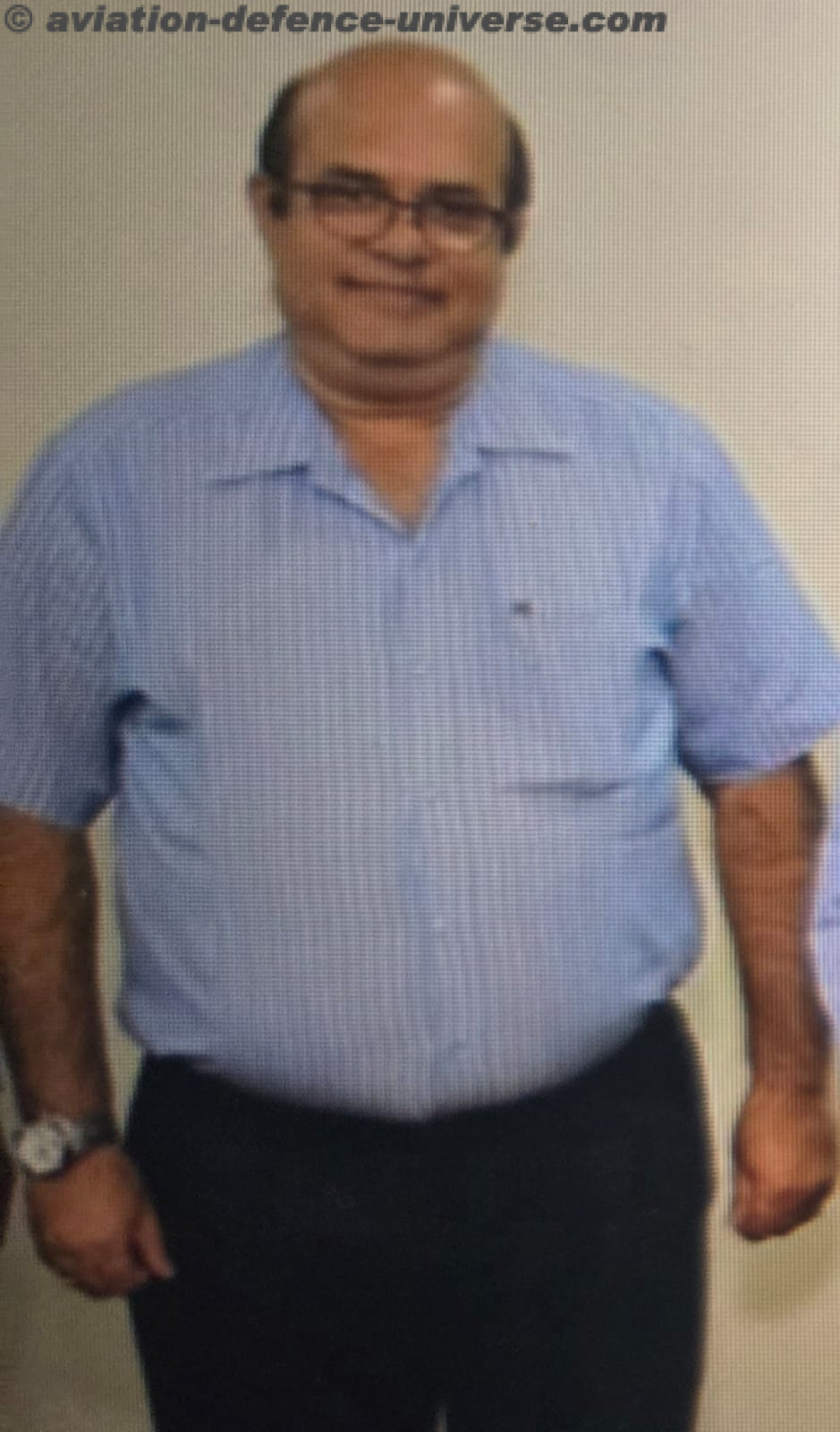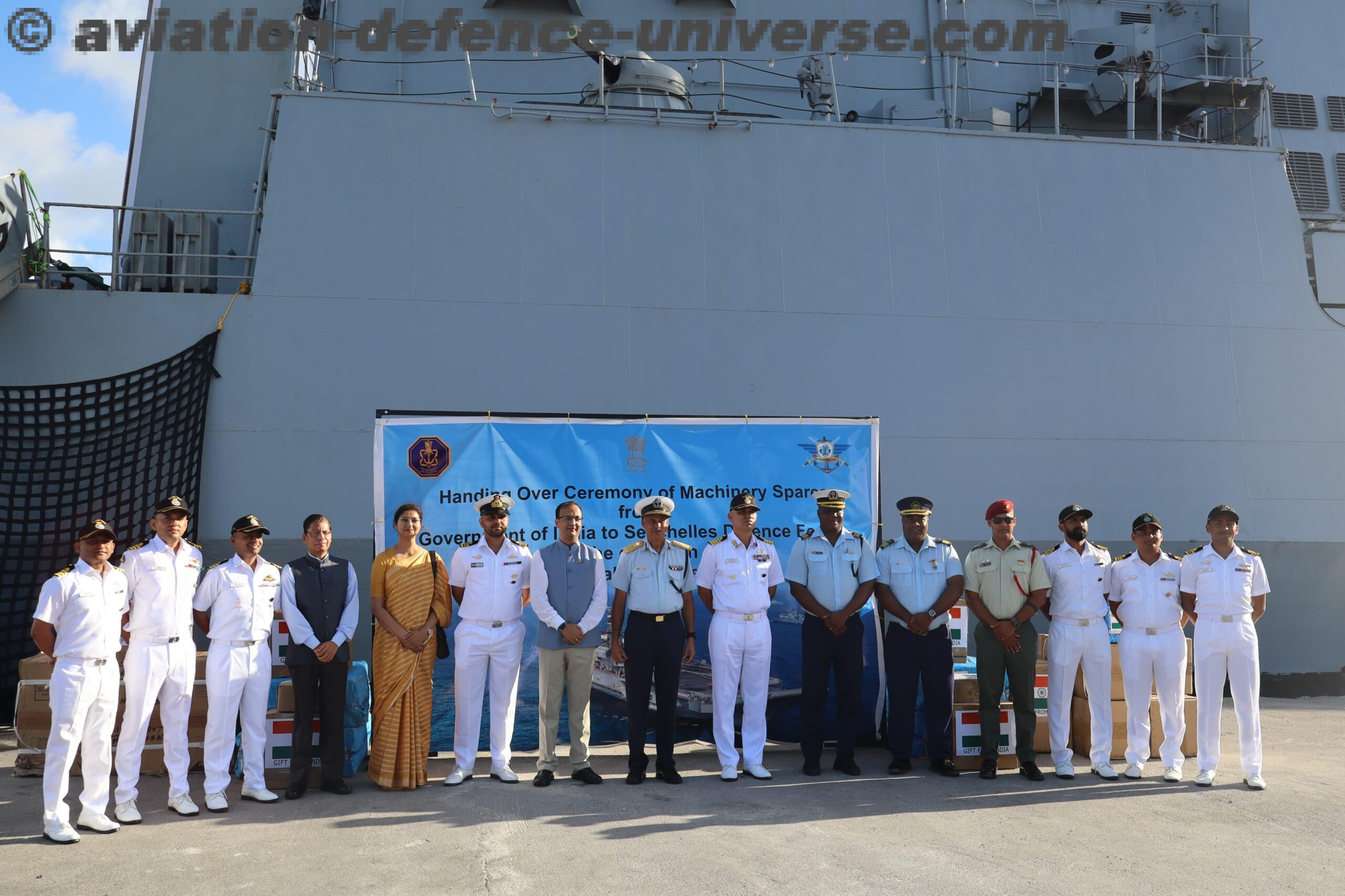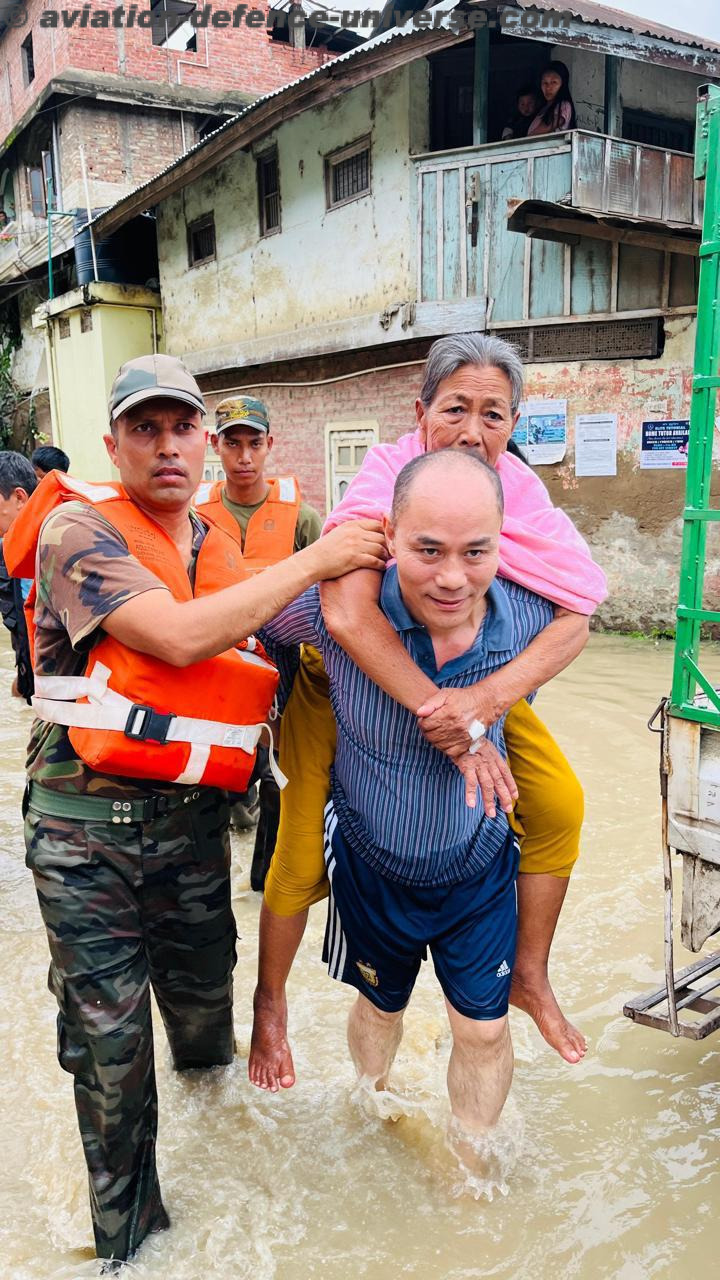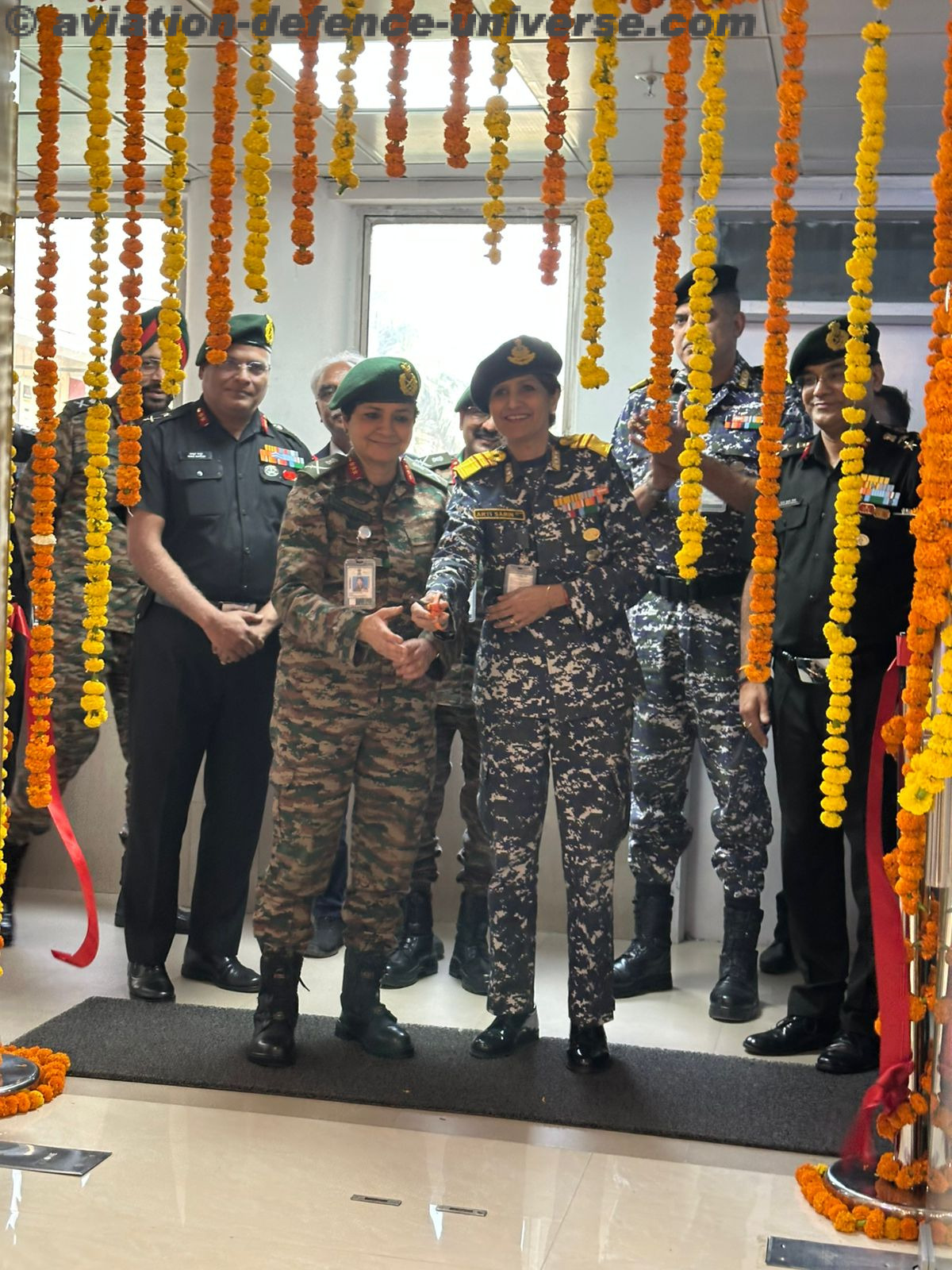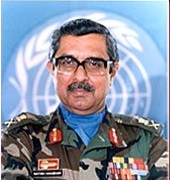
Born in Mumbai on 30th August 1936, Lt Gen Satish Nambiar had his education in Pune and Mumbai. Commissioned on 15th December 1957 from the Indian Military Academy, Dehra Dun, into the 20th Battalion of the Maratha Light Infantry, he saw active service in the country’s North-Western and North-Eastern theatres, including counter-insurgency operations in Nagaland, and in the Indo-Pakistan conflicts on the sub-continent: in 1965 in the Sialkot Sector; and in 1971 in the Eastern theatre (Bangla Desh). During the 1962 conflict with the Chinese he was deployed with 20 Maratha LI on the then Cease-Fire Line in Jammu and Kashmir. A graduate of the Australian Staff College (1968), he commanded two battalions of the Regiment: the 1st (Jangi Paltan) from April 1972 to November 1973, and the 20th (Mechanised) from November 1973 to July 1975.
Was a member of an Indian Army Training team in Iraq from July 1977 to January 1979, and on the faculty of the Defence Services Staff College at Wellington in the Nilgiris from April 1980 to January 1982. Attended the Higher Command Course at the College of Combat (now re-designated Army War College) in 1979-80. Raised and commanded the first mechanised brigade group of the Indian Army, and later commanded the Mechanised Division. Served as the Military Adviser at the High Commission of India in London from December 1983 to November 1987. The General Officer served on the General Staff Branch at Divisional Headquarters and in the appointments of Additional Director General and Director General of Military Operations at Army Headquarters. In the latter capacity, he led two defence delegations for discussions with Pakistani counterparts: in the meetings held in April 1991 at New Delhi, he negotiated an agreement (which still holds) on exchange of information between the two countries on conduct of military exercises and aircraft flights in the proximity of the border, as also communications between naval vessels at sea; and in September 1991 at Islamabad, he negotiated an end to hostile action between the two countries on the Line of Control in the Poonch Sector.
Deputed by the Government of India as the first Force Commander and Head of Mission of the United Nations forces in the former Yugoslavia initially in the grade of an Assistant Secretary General and later Under Secretary General, he had the distinction of setting up the Mission under most difficult conditions, and commanding it for a year from 3rd March 1992 to 2nd March 1993. Declining an offer of extension, he returned to the rolls of the Indian Army, and retired as the Deputy Chief of the Army Staff on 31st August 1994. Had the honour of serving as the Colonel of the Mechanised Infantry Regiment of the Indian Army from June 1988 till retirement in August 1994.
Awarded the Vir Chakra for bravery in battle during the Indo-Pak conflict in 1971, the General Officer is also the recipient of the Ati Vishist Seva Medal in 1991 for distinguished service of a very high order and the Param Vishist Seva Medal in 1994 for distinguished service of an exceptional order.
Holds a Masters Degree in Defence Studies from the University of Madras and has been actively engaged since retirement, in the study and analysis of UN peacekeeping operations, national security matters, including defence strategy, and international relations. Invited to speak periodically at various institutions within India and abroad like the National Defence College, the Defence Services Staff College, the Foreign Service Institute, the Jawaharlal Nehru University and other universities, the Army, Navy and Air Force War Colleges, the Royal College of Defence Studies, London and so on, the General Officer is regularly invited to attend, participate and present papers, at various international symposia, seminars, and bilateral and multilateral discussions. Contributes regularly to periodicals and journals on national security, international relations and peace operations. Has authored chapters in international publications on peace operations, international intervention, and just war and genocide. Authored a book “For the Honour of India: A History of Indian Peacekeeping” under the aegis of the United Service Institution of India Centre for Armed Forces Historical Research, which was released by Shri Hamid Ansari, the Vice President of India on 29 May 2009.
A life member of the United Service Institution of India, he served as the Director of the Institution from 1st July 1996 to 31st December 2008. During a twelve and a half year period as Director, besides fulfilling the basic charter of the 140-year old Institution, he initiated three additional areas of activity: a Centre for United Nations Peacekeeping: a Centre for Armed Forces Historical Research: and a Centre for Strategic Studies and Simulation. Elected to the Governing Council of the Institution for the period 01 January 2011 to 31 December 2013, he has been re-elected for the period 01 January 2014 to 31 December 2016. A life member of the Institute for Defence Studies and Analyses, New Delhi, he was invited in February 2011 by the Executive Council, to join the Institute as a ‘Distinguished Fellow’; in which capacity he served for four years upto February 2015. Is an associate member of the India International Centre in New Delhi and has served as a member of the Governing Board of the Indian Council of World Affairs, New Delhi.
During 2002/2003 he was adviser to the Govt of Sri Lanka on certain aspects of the peace process in that country. Was on the International Advisory Council of the Folke Bernadotte Academy, Sandoverken, Sweden, and a Senior Adviser of the Challenges Forum an initiative of the FBA on Peace Operations. Appointed to the Advisory Board of the United Nations Institute for Training and Research (UNITAR) Peacekeeping Training Programme (PTP) on 01 September 2009, he has assumed Chairmanship of the Advisory Board in October 2013. On the Advisory Board of the Geneva based ICT for Peace Foundation, he is an inaugural member of the International Advisory Board of the Security Council Report a neutral and independent non-profit organisation dedicated to reporting on the United Nations Security Council, and of the Advisory Council of the International Network to Promote the Rule of Law (INPROL), an initiative based at the United States Institute of Peace in Washington DC. Was a member of an Expert Legal Inquiry set up by the Geneva based International Commission of Jurists (ICJ) to ascertain whether there had been violations of International Humanitarian Law during the actions in Lebanon in July/August 2006. Is a member of an International Verification Commission (IVC) that is monitoring implementation of a cease-fire declared by ETA in Spain. Most recently, he has been co-opted as a member of a Global Reflection Group on “Monopoly for the Use of Force 2.0 ?”, set up and supported by the Friedrich Ebert Stiftung.
On 4th November 2003 the General Officer was nominated by Kofi Annan the then Secretary General of the United Nations, to serve on a 16-member High Level Panel on “Threats, Challenges and Change” that produced a report titled “A More Secure World: Our Shared Responsibility”. This report formed the basis of the UN Secretary General’s report to the 2005 World Summit.
Has been member of the following national initiatives: bilateral strategic dialogues sponsored by the Confederation of Indian Industry with the US-based Aspen Strategy Group, the China Reform Forum and with Singapore; also a trilateral USA-Japan-India dialogue; member of the Indian delegation at the India-EU Round Table; and member of the India chapter of the Council for Security Cooperation in the Asia Pacific (CSCAP).
On the occasion of Republic Day 2009, in recognition of his sustained efforts in the study and analysis of “National Security Affairs”, the President of India conferred the General Officer with the Padma Bhushan, a high civilian honour.














